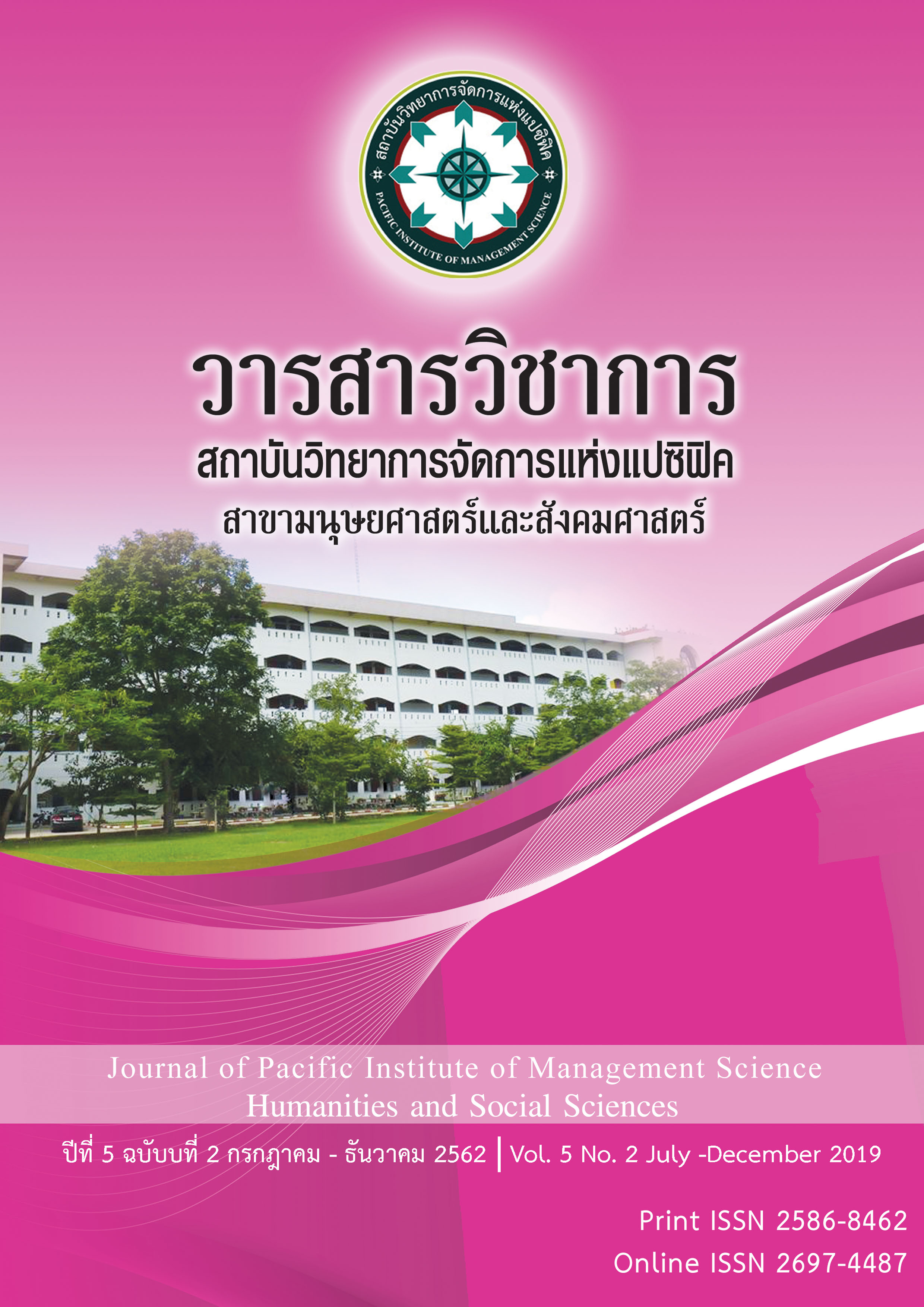THE DEVELOPMENT OF MUAYTHAI SPORT TOURISM CURRICULUM FOR FOREIGNER
Keywords:
Development of Muaythai sport tourism curriculum for foreigner, Sport tourismAbstract
The purposes of this research were:
1. To develop Muaythai sport tourism curriculum for foreigner
2. To evaluate quality of Muaythai sport tourism curriculum for foreigner
The research samples consisted of 27 Indonesian tourists by purposive sampling. Research procedure are 1) Correcting essential fundamental data 2) Developing Muaythai sport tourism curriculum for foreigner 3) Evaluation of curriculum structure 4) Implementation of the curriculum and 5) Improvement of Muaythai sport tourism curriculum for foreigner. Statistical used in this research were content analysis mean ( X) standard deviation (SD) and t-test
The funding were as follow:
1) The structure of the Muaythai sport tourism for foreigner are principal and background, objectives, content, learning activities, extra-learning activities and learning media quality level of the curriculum was very good
2) Almost tourist’s expectation of studding and reality condition in the high level when analyzed found that different reality higher than expectation with statistical significance difference (P-Value) < 0.05
3) Self evaluation of tourists on attitude toward Muaythai was very much will cognitive and Muaythai skill were much
References
อัตถนิช โภคทรัพย์. (2552). ภูมิศาสตร์ปรัชญาแห่งมวยไทย. กรุงเทพมหานคร: ซีเอ็ดยูเคชั่น.
สมบัติ สว่างควัฒน์. (2554). ย้อนตํานานแวดวงมวยไทยจากอดีตถึงปัจจุบัน. กรุงเทพมหานคร: ก้าวแรก.
เพชรศรี นนทร์ศิริ. (2557). บทความถนนการท่องเที่ยวแห่งอาเซียน: ข้อคิดเห็นเบื้อต้นเกี่ยวกับนโยบาย การพัฒนาการท่องเที่ยวเพื่อเตรียมความพร้อมเข้าสู่ประชาคมอาเซียน ในปีพ.ศ. 2558. (อัดสําเนา).
ธีรพล พลลาภ. (2557). การวิเคราะห์คุณค่าศิลปะมวยไทย. วิทยานิพนธ์ ปริญญาดุษฎีบัณฑิต สาขาวิชามวย ไทยศึกษา มหาวิทยาลัยราชภัฏหมู่บ้านจอมบึง.
Downloads
Published
Issue
Section
License
บทความที่ได้รับการตีพิมพ์เป็นลิขสิทธิ์ของ สถาบันวิทยาการจัดการแห่งแปซิฟิค
ข้อความที่ปรากฏในบทความแต่ละเรื่องในวารสารวิชาการเล่มนี้เป็นความคิดเห็นส่วนตัวของผู้เขียนแต่ละท่านไม่เกี่ยวข้องกับสถาบันวิทยาการจัดการแห่งแปซิฟิค และคณาจารย์ท่านอื่นๆในสถาบันฯ แต่อย่างใด ความรับผิดชอบองค์ประกอบทั้งหมดของบทความแต่ละเรื่องเป็นของผู้เขียนแต่ละท่าน หากมีความผิดพลาดใดๆ ผู้เขียนแต่ละท่านจะรับผิดชอบบทความของตนเองแต่ผู้เดียว







